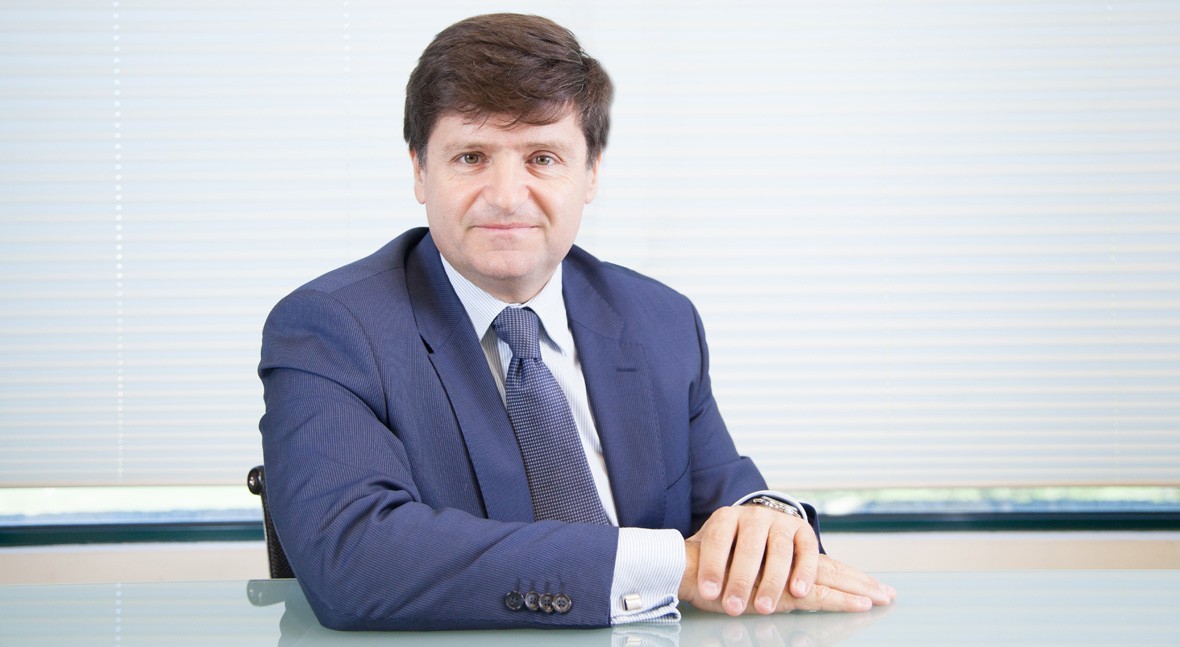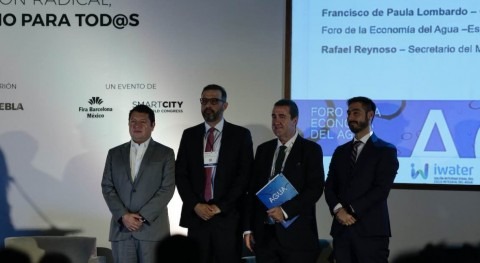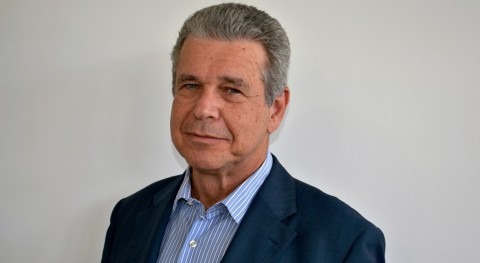Rogerio Koehn, Service Utilities Development Director at ACCIONA, Spain, is one of the speakers at the 11th Water Economy Forum to be held on July 2nd in Puebla, Mexico, where he will participate in a session on resilience versus irreversibility in water services management in large metropolitan areas.
Throughout his extensive career, Rogerio has worked for water sector companies in Latin America, including several water companies in Latin America and Spain in the last 20 years. He was the CEO of a private company providing integrated water cycle services in Uruguay in 2002 and 2003. Later on he became CEO of a private company providing integrated water cycle services in Campo Grande, a city in the heart of Brazil with more than 800,000 people. After two years, he moved on to a private-public company providing integrated water cycle services, also as the CEO, in Saltillo, a city located in the Mexican desert, north of Mexico City, also with a population size of more than 800,000 people. In 2009 he travelled to Andalusia, in Spain, to take charge of the water concession contracts of Agbar in the south of Andalusia, until 2012, when he was named CEO of Canaragua, the leading company providing integrated water cycle services in the Canary Islands. Finally, in 2017 he took on the responsibility of leading the global business expansion of the integrated water cycle services of ACCIONA.
Question: What do you think are the most relevant challenges for water security worldwide? What about in Latin America in particular?
Answer: Without a doubt, globally the most important challenge is resiliency to the effects of climate change, as well as fulfilling the Sustainable Development Agenda 2030 of the United Nations. This is in regard to providing universal access to water and sanitation for every household, taking into account that large cities across the world are growing very fast.
In Latin America, the challenge is reversing the poor technical indicators for the main water and sanitation infrastructure in the continent's major cities. The growth of systems with interruptions in the water service, the deterioration of water networks, and the low coverage of sanitation services put at risk the development of many cities in the region.
'In Latin America, the challenge is reversing the bad technical indicators for the main water and sanitation infrastructure in the continent's major cities'
Q: How can the private sector contribute to addressing these challenges?
A: Over the past 20 years, the public sector in Latin America has not been able to reverse the poor management indicators for the sector, as well as the low or poor investment in real infrastructure that can improve water security contributing to the sustainable growth of large cities. In addition, if we focus on sanitation infrastructure, the situation in these past 15 years is comparable to the worse cases worldwide.
The experience with private management is for the most part very positive, with success stories particularly in Chile, Colombia and Brazil. These success stories should be replicated elsewhere in the region, though always adapting them to the circumstances in each case.

Photography: González-Cebrián/iAgua.
Q: To this effect, can you tell us about the water projects of ACCIONA in Latin America?
A: ACCIONA has been present in Latin America for more than 30 years. It can be found everywhere in the continent, with projects that involve drinking water treatment plants, waste water treatment plants, desalination plants, drinking water and sewerage networks, and automation systems for water infrastructure.
Currently, the main projects are:
- The operation of the Atotonilco waste water treatment plant, treating more than 31 m3/s, or a load of 12.5 million population equivalents in the metropolitan area of Mexico City.
- The operation of integrated water cycle services for 30 years of the Boca del Río water utility in Veracruz, Mexico, providing services to more than 150,000 people.
- The operation of the waste water treatment plant of La Chira in Lima, Peru, processing 550,000 m3 per day or a load of 2.5 million population equivalents.
- The operation of the Copiapó desalination plant in the Atacama desert, in Chile.
Q: ¿What do you expect from your participation in this XI Water Economy Forum?
A: I think it is very interesting to have this edition of the Water Economy Forum in Mexico for the first time.
Latin America is the region to better understand the different water cycle management models and how they really affect the economy of a city. Having the Water Economy Forum in Latin America will enable a rich discussion, more so than those held in Spain, because in this region the success stories or failures with regard to water management and their consequences are more illustrative.
In Latin America investment and management of water systems are key to achieve the United Nations SDGs. However, in this region there are still some biased or self-interested discourses which hinder progress toward professional management of the water cycle. I have no doubt that the Water Economy Forum in Puebla, Mexico, with an independent discourse, and speakers with diverse profiles, will provide a new framework for technical, political, academic and social discussion, which is essential to drive the sustainable development of successful management models in the future.









